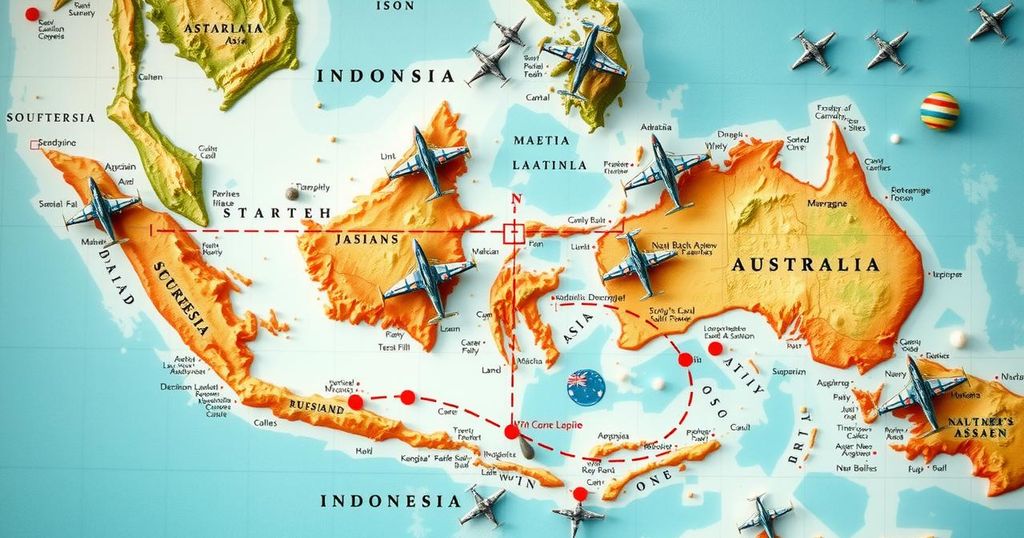A recent report claimed Russia sought to station warplanes in Indonesia, causing concern in Australia. Indonesian authorities denied these claims, with Defence Minister Richard Marles confirming the report’s inaccuracy. The incident sparked discussions about national security ahead of Australia’s federal election, with leaders emphasizing the need for strong diplomatic relations and opposition to Russian influence in the region. The situation is further complicated by the departure of Russia’s ambassador to Australia.
In a recent development, Russia’s alleged request to station warplanes in Indonesia near Australia’s northern coast has been dismissed as false by Indonesian authorities. Reports from the reputable journal Janes indicated that the Kremlin sought permission for aircraft deployments in Biak, Papua, leading to concerns in the Australian government regarding national security. Defense Minister Richard Marles confirmed that Indonesian Defence Minister Sjafrie Sjamsoeddin communicated that these reports were not accurate.
Marles emphasized, “Reports of the prospect of Russian aircraft operating from Indonesia are simply not true.” This clarification follows growing questions about Australia’s diplomatic relations amidst the federal election campaign. Prime Minister Anthony Albanese expressed surprise at the report, stressing the importance of countering Russian influence and affirming Australia’s support for Ukraine.
Opposition Leader Peter Dutton described the situation as potentially indicative of a significant failure in diplomatic relations if the Australian government was not duly informed of any Russian requests. He remarked on the troubling implications of Russian military assets close to Australia, reiterating that Australia values its relationship with Indonesia while opposing any Russian military presence in the region.
In recent months, Moscow’s ties with Jakarta have appeared to strengthen, with reports indicating an official request from Russia for basing several long-range aircraft at an air facility in Biak, which coincided with meetings between Russian and Indonesian officials. The airbase is currently used by Indonesia’s aviation squadron and is critical to regional security.
Adding to the complexity, the situation arises alongside the quiet departure of Russia’s ambassador to Australia, Alexey Pavlovsky, further fueling speculation regarding Russia’s diplomatic engagements. The Australian government, through Marles, has not publicly commented on the circumstances surrounding his exit.
The recent claims regarding Russia wanting to establish a military presence in Indonesia have been officially denied by the Indonesian government. This incident has heightened conversations about national security within Australia as the federal election approaches. Australia’s leaders, including Defense Minister Marles and Opposition Leader Dutton, have stressed strong, transparent diplomatic relations and opposition to Russian military influence in the region, underlining the importance of Indonesia’s role as an ally. The departure of Russia’s ambassador only adds to the uncertain dynamics at play.
Original Source: psnews.com.au






